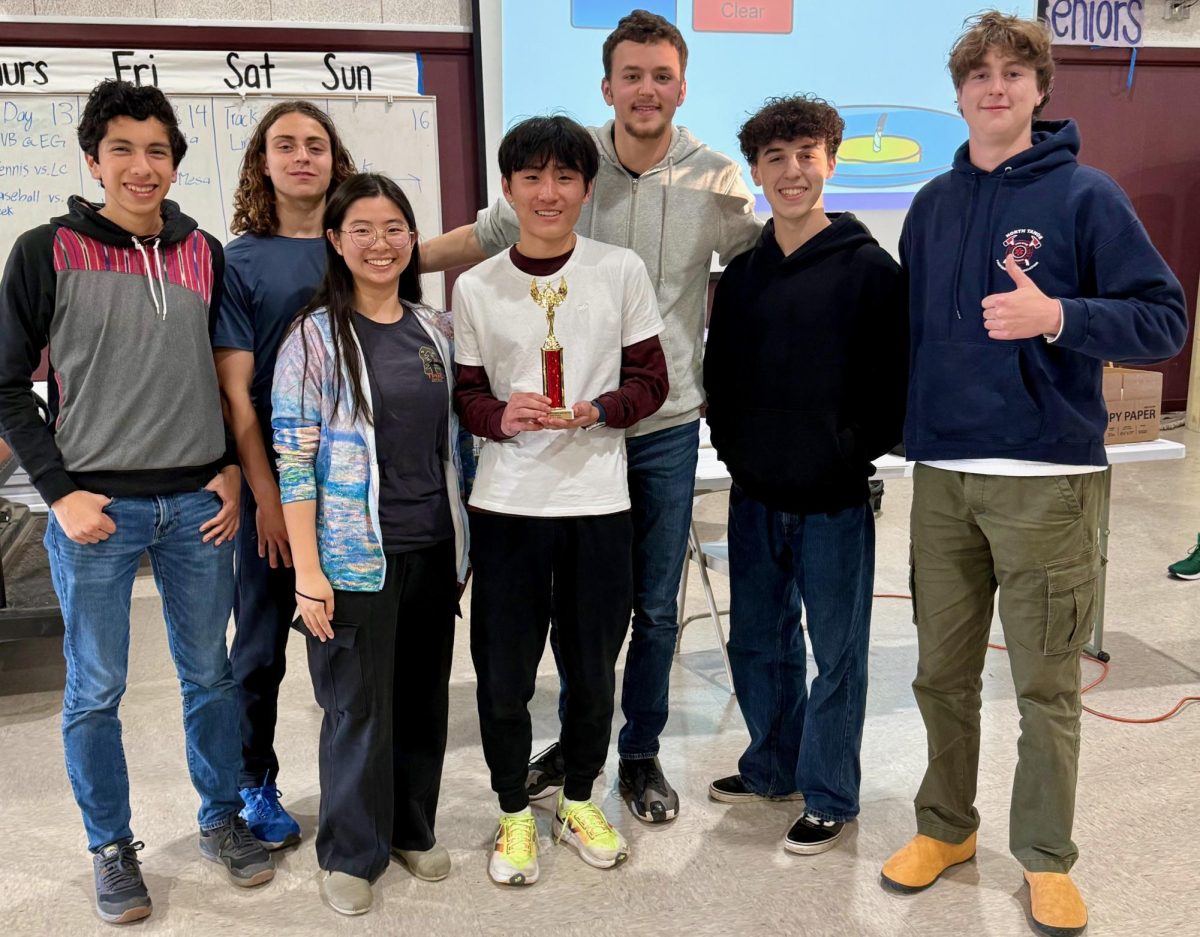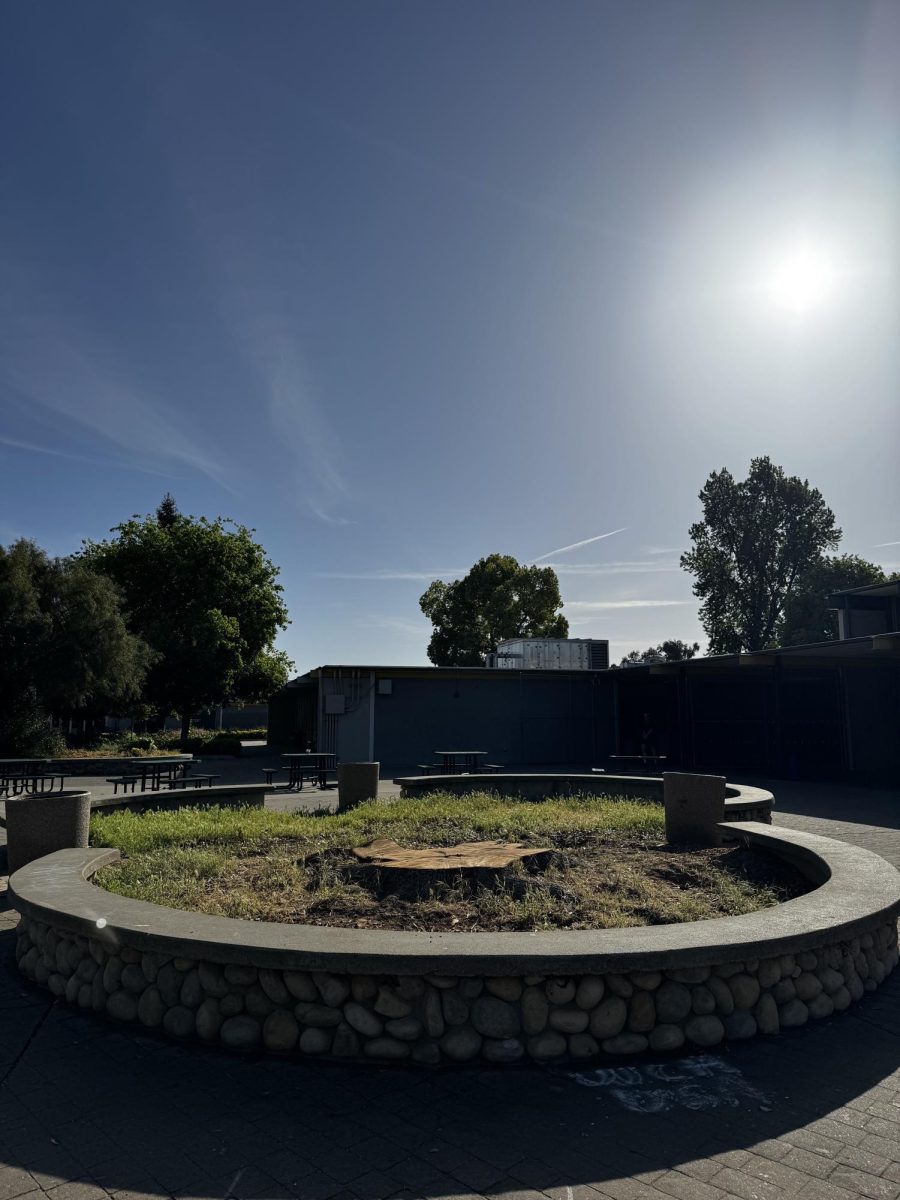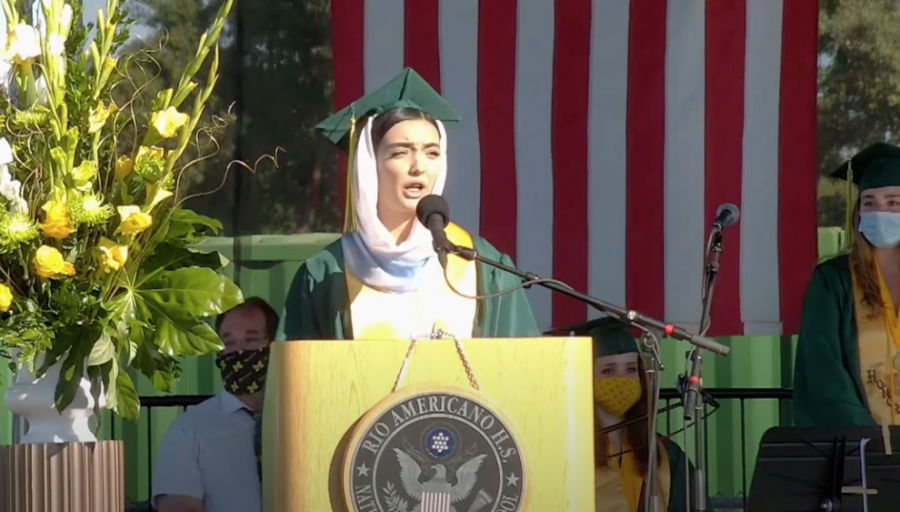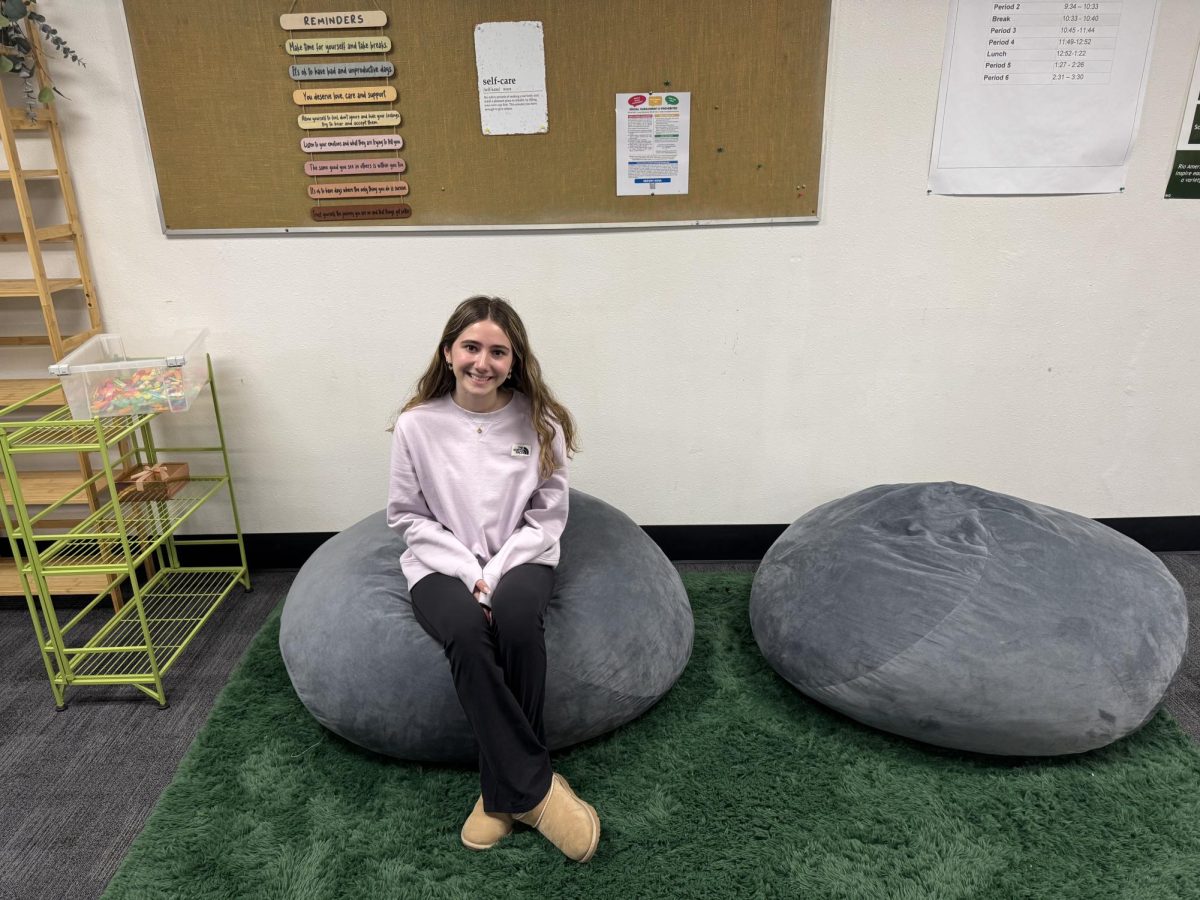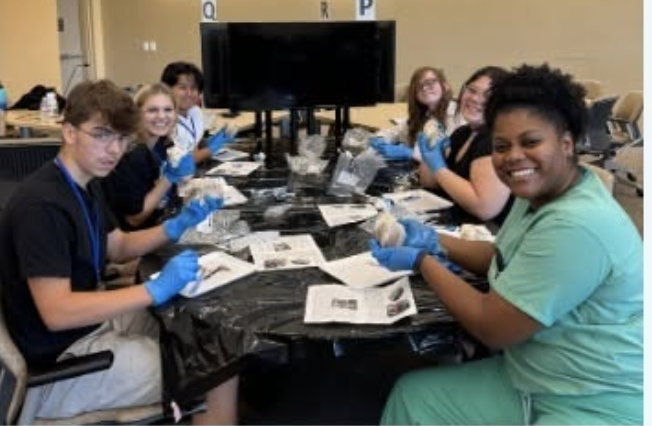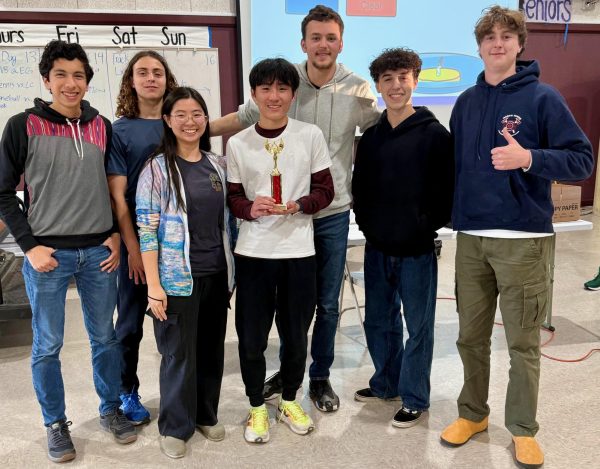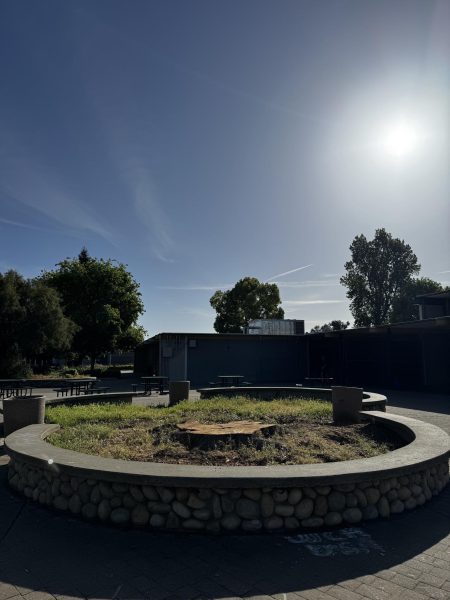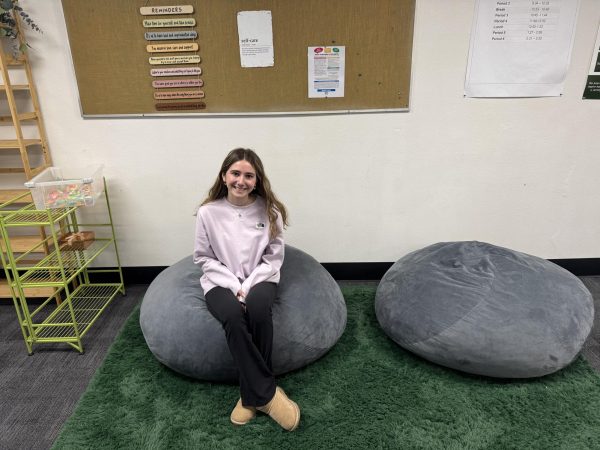Seniors Re-evaluate College Plans Due to Pandemic
Photo By Samantha Klein
Rio Seniors celebrate future plans after college. Some members switched colleges as more information was released and others follow the path they always dreamed of.
Making the decision of where to go to college is already filled with uncertainty and this year is no different. But, there’s more for the Class of 2020 seniors to think about.
The coronavirus pandemic has left seniors wondering whether they will attend college in person in the fall, and if not, how they can best optimize what was supposed to be their first college semester.
With college deposits due and frantic students planning their coursework, the COVID-19 pandemic created a ripple effect of colleges closing for the fall semester.
Amid the recent closure of the Los Rios Community College and Cal State campuses, many students face the harsh reality of having to attend college from home.
The Mirada surveyed 61 seniors in late April who had been planning to attend a four-year college before the COVID-19 pandemic struck. Similar to the national rate of 20 percent, 23 percent of students at Rio said they are likely or very likely not to attend a four-year college next fall because of the pandemic.
“I’m registering for classes at ARC and will likely attend classes there if St. Mary’s doesn’t start in the fall,” said senior Ava Harrison.
Excited to attend their dream schools, other students plan to forgo their on-campus experience but still take their college’s online curriculum.
“I plan to take the online classes for San Diego State, but find a job here because we can’t stay in the dorms for at least another semester,” said senior Caitlyn Hayden.
For some students, more than academics is causing them anxiety surrounding their university’s decision to reopen, or not. In particular, student athletes face challenges with closed campuses as their sports season is still in question.
Senior Sophia Karperos has plans to run for Yale University and to start training with the team over the summer. But her future with the team is unclear, and could change depending on the school’s ultimate decision for the fall semester.
“Right now we are training like we normally would to get ready for a cross country season,” said Karperos. “Worst case scenario, we will have time trials to simulate a normal season.”
Although the outbreak has caused concern for most students, some have received new college opportunities.
Already enrolled at California State University at San Luis Obispo, senior Maddy Burns received offers to enroll from both the University of California at Santa Barbara and the University of California at Berkeley.
Shaken by the uncertainty of the future, more universities continue to enroll students like Maddy from their waitlists as the national enrollment rate drops.
“I was excited to gain acceptances off of the waitlist because it’s pretty rare when that happens,” said Burns.
Although Burns has confirmed her enrollment to UC Berkeley, others are waiting to see what will happen in the future. Part of the 18 percent of Rio seniors who say it is too soon to make a decision for sure, Marian Tully has had to reevaluate her college plans for the upcoming semester.
“If school doesn’t start in the fall, I’ll go to ARC to save money,” said Tully. “Although it’s disappointing, it doesn’t make sense to pay out of state tuition for online school at home.”
In the case that campuses are open, schools plan to make housing accomodations. The UCs are planning on removing all triple rooms and converting them to either single or double options.
Other schools like UCSF and UCLA have stated they cannot guarantee on campus housing for its students this year. This trend will likely continue as universities work to prioritize student safety.
Increasingly, universities are finding new ways to support their students under the unprecedented circumstances by rolling out the option of deferring a student’s acceptance to the following semester or year.
Many seniors who were planning to visit colleges after finding out they were accepted have to face the challenge of deciding on a campus without having been there.
Oftentimes, visiting a campus in person is one of the best ways for a student to decide if a college is the right fit for them. But, most campuses are closed to in-person visits, and students are using virtual visits to try and not only get a feel for the physical layout of the campus but also to try and understand the more nuanced details of a college campus that affect how a student feels they would fit in.
“It was challenging deciding between schools because I never got the chance to visit either of them,” said senior Miri Leaderman. “I couldn’t base my decision off of how I felt at each university and I’ll have to hope I like the campus when I’m there.”
The pandemic, as well as the option for students to defer, has a major financial implication for universities.
Smaller schools may have to consider closing or merging with larger schools because of the significant financial blow the coronavirus has had on their revenue, and larger schools have to look at ways to reduce their faculty while still providing a quality education.
Oftentimes, universities rely on international students, who pay full tuition, as a main source of revenue. If there are travel restrictions to get into the US, or if US embassies are closed, international students may not be able to complete all of the necessary steps to go to college in the US.
An online learning model isn’t necessarily feasible for international students because of international time zones that could prevent them from attending live online classes in their home countries. Even if colleges offer a delayed start option for students, there will likely be a backlog of people trying to get visas, and the process to get a student visa for an international student could take even longer than normal.
Everything from online curriculum to housing uncertainty to the inability to visit campuses makes the decision especially hard for this year’s graduating seniors. And colleges have to modify their plans to accommodate students’ new plans.


